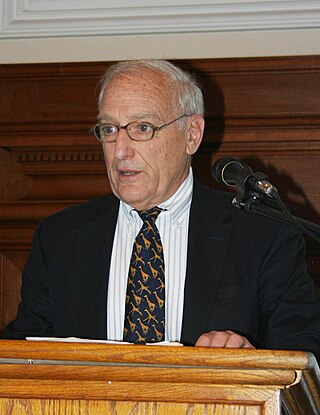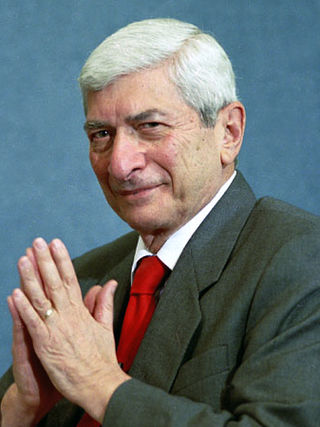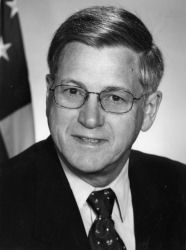Autocracy is a system of government in which absolute power is held by the ruler, known as an autocrat. It includes most forms of monarchy and dictatorship, while it is contrasted with democracy and feudalism. Various definitions of autocracy exist. They may restrict autocracy to cases where power is held by a single individual, or they may define autocracy in a way that includes a group of rulers who wield absolute power. The autocrat has total control over the exercise of civil liberties within the autocracy, choosing under what circumstances they may be exercised, if at all. Governments may also blend elements of autocracy and democracy, forming an anocracy. The concept of autocracy has been recognized in political philosophy since ancient times.
In political science, a political system means the type of political organization that can be recognized, observed or otherwise declared by a state.

Joshua Mqabuko Nyongolo Nkomo was a Zimbabwean revolutionary and politician who served as Vice-President of Zimbabwe from 1990 until his death in 1999. He founded and led the Zimbabwe African People's Union (ZAPU) from 1961 until it merged in 1987 with Robert Mugabe's Zimbabwe African National Union (ZANU) to form ZANU–PF after an internal military crackdown called Gukurahundi in western Zimbabwe, mostly on ethnic Ndebele ZAPU supporters.
The International Foundation for Electoral Systems (IFES) is an international, non-profit organisation founded in 1987. Based in Arlington, Virginia, United States, the organization assists and supports elections and electoral stakeholders. Since 1987, IFES has worked in 145 countries and has programs in more than 50 countries throughout Asia-Pacific, Africa, Eurasia, the Middle East, and North Africa, and the Americas.

Stephen Philip Cohen was an American political scientist and professor of security studies. He was a leading expert on India, Pakistan and South Asian security, He was a senior fellow in foreign policy studies at the Brookings Institution and an emeritus professor at the University of Illinois at Urbana-Champaign. He authored, co-authored or edited over 12 books, was named as one of America's 500 most influential people in foreign affairs, and was a fixture on radio and television talk shows.

Robert Irwin Rotberg is an academic from the United States who served as President of the World Peace Foundation (1993–2010). A professor in governance and foreign affairs, he was director of the Program on Intrastate Conflict, Conflict Prevention, and Conflict Resolution at Harvard University's John F. Kennedy School of Government (1999–2010), and has served in administrative positions at Tufts University and Lafayette College.

Marvin Leonard Kalb is an American journalist. He was the founding director of the Shorenstein Center on Media, Politics and Public Policy and Edward R. Murrow Professor of Press and Public Policy from 1987 to 1999. The Shorenstein Center and the Kennedy School are part of Harvard University. Kalb is currently a James Clark Welling Fellow at George Washington University and a member of the Atlantic Community Advisory Board. He is a guest scholar in foreign policy at the Brookings Institution.

Per Anders Åslund is a Swedish economist and former Senior Fellow at the Atlantic Council. He is also a chairman of the International Advisory Council at the Center for Social and Economic Research (CASE).

The People's Republic of Angola was the self-declared socialist state which governed Angola from its independence in 1975 until 25 August 1992, during the Angolan Civil War.
Authoritarianism is a political system characterized by the rejection of democracy and political plurality. It involves the use of strong central power to preserve the political status quo, and reductions in the rule of law, separation of powers, and democratic voting. Political scientists have created many typologies describing variations of authoritarian forms of government. Authoritarian regimes may be either autocratic or oligarchic and may be based upon the rule of a party or the military. States that have a blurred boundary between democracy and authoritarianism have some times been characterized as "hybrid democracies", "hybrid regimes" or "competitive authoritarian" states.

The Dartmouth Conference is the longest continuous bilateral dialogue between American and Soviet representatives. The first Dartmouth Conference took place at Dartmouth College in 1961. Subsequent conferences were held through 1990. They were revived in 2014 and continue today. Task forces begun under the auspices of the main conference continued to work after the main conference stopped. The Regional Conflicts Task Force extended the sustained dialogue model, based on the Dartmouth experience, to conflicts in Tajikistan and Nagorno-Karabakh. Dartmouth inspired a number of other dialogues in the former Soviet Union and elsewhere, many of them under the auspices of the Sustained Dialogue Institute and the Kettering Foundation.

General elections were held in Burma over several months between June 1951 and April 1952 due to internal conflict within the country.

Bruce D. Jones is an American academic, an author and policy analyst. He is Director of the Foreign Policy program and Director of the Project on International Order and Strategy at the Brookings Institution. He is also a consulting professor at the Freeman Spogli Institute at Stanford University and chair of the advisory council of the Center on International Cooperation at New York University.

This is a bibliography of U.S. congressional memoirs by former and current U.S. representatives. The United States House of Representatives is one of the two houses of the United States Congress, the bicameral legislature which also includes the Senate.
Anocracy, or semi-democracy, is a form of government that is loosely defined as part democracy and part dictatorship, or as a "regime that mixes democratic with autocratic features". Another definition classifies anocracy as "a regime that permits some means of participation through opposition group behavior but that has incomplete development of mechanisms to redress grievances." The term "semi-democratic" is reserved for stable regimes that combine democratic and authoritarian elements. Scholars distinguish anocracies from autocracies and democracies in their capability to maintain authority, political dynamics, and policy agendas. Similarly, the regimes have democratic institutions that allow for nominal amounts of competition. Such regimes are particularly susceptible to outbreaks of armed conflict and unexpected or adverse changes in leadership.
A hybrid regime is a type of political system often created as a result of an incomplete democratic transition from an authoritarian regime to a democratic one. Hybrid regimes are categorized as having a combination of autocratic features with democratic ones and can simultaneously hold political repressions and regular elections. Hybrid regimes are commonly found in developing countries with abundant natural resources such as petro-states. Although these regimes experience civil unrest, they may be relatively stable and tenacious for decades at a time. There has been a rise in hybrid regimes since the end of the Cold War.
The World Peace Foundation or WPF, created in 1910, is a philanthropic foundation for research into peace processes affiliated with The Fletcher School of Law and Diplomacy at Tufts University. Alex de Waal is the director as of 2021, having become director in 2011.

Kenneth Prewitt an American academic who is the Carnegie Professor of Social Affairs at Columbia University's School of International and Public Affairs, where he is also director of the Scholarly Knowledge Project. He was Director of the United States Census Bureau from 1998 to 2001.

Jane Jebb Mansbridge is an American political scientist. She is the Charles F. Adams Professor of Political Leadership and Democratic Values in the Kennedy School of Government at Harvard University.

G. Norman Anderson is an American diplomat and author, serving as the United States ambassador to Sudan from 1986 to 1989.













